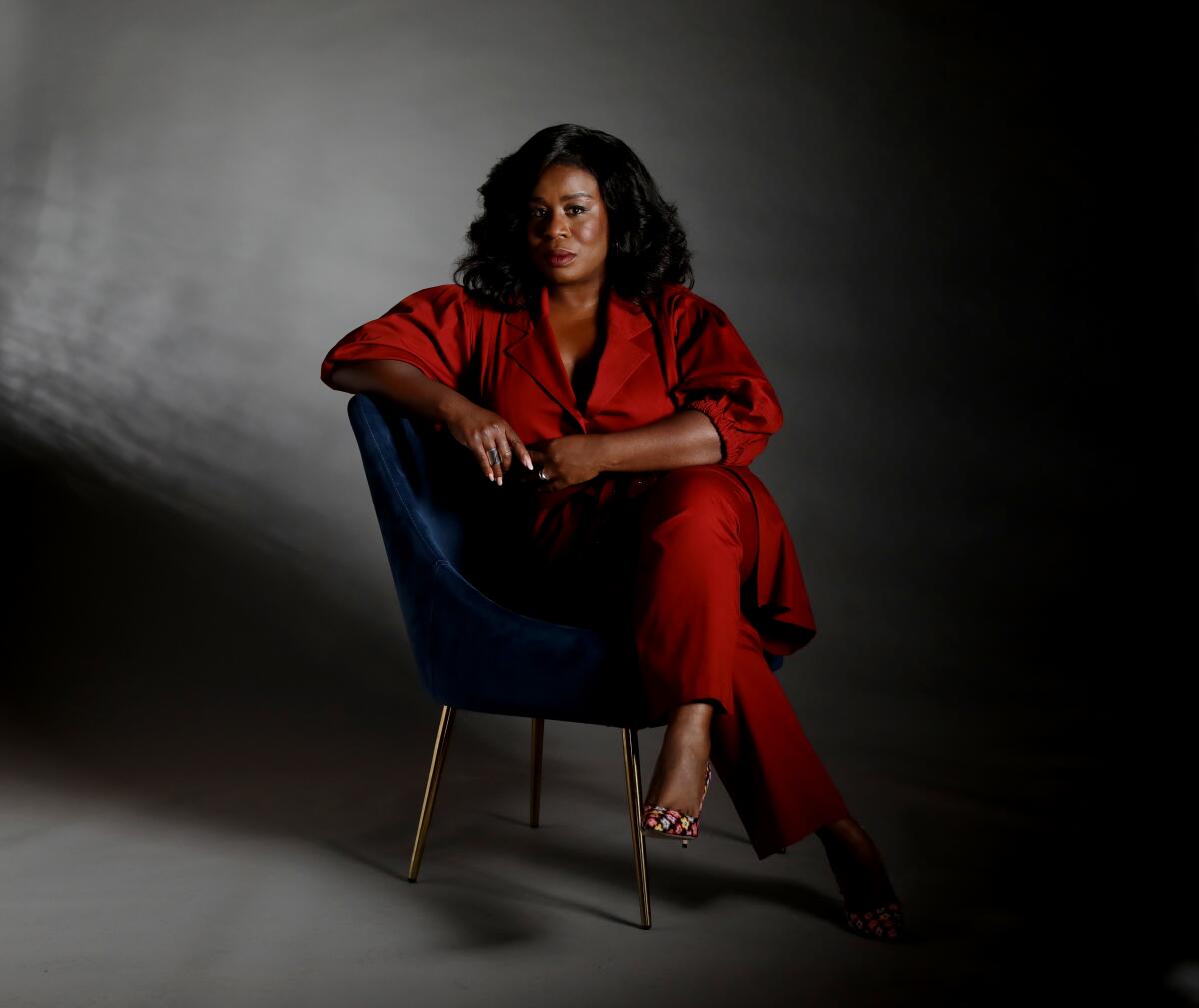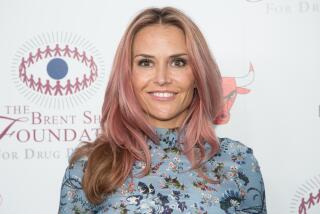Why Uzo Aduba thinks now is the right time for a new ‘In Treatment’

Even with three Emmy Awards on her resume, Uzo Aduba says the prospect of starring in a new incarnation of HBO’s serial drama “In Treatment” made her nervous. Truth be told, she says, it was the first time in a long time that she’d felt that “opening night of a show” fear. Why the case of the nerves? Every half-hour episode finds her psychotherapist Brooke Taylor deep in complex conversations with a patient in serious therapy.
“It was the hardest thing I’ve ever worked on,” the former “Orange Is the New Black” actress says. “And I have to shout out the woman I worked with on this show who assisted me, Maydelle Clarice. [She] worked on set with me every single day to learn those lines. We would work [while doing] hair and makeup, we would work between takes, we would work 30 minutes over lunch, we would work the 45 minutes to an hour after we wrapped, we would work Saturdays for four hours and Sundays for four hours because it’s just such dense material to learn. I feel like I have to say her name three times because I could not have done that alone.”
In a twist of fate, Aduba shot an episode of the anthology series “Solos” before “In Treatment” went into production. That stand-alone story saw her portraying Sasha, a woman in the near future who hasn’t left her automated Stay Home for 7,324 days over fears of a virus that ravaged the world two decades earlier. And, like “In Treatment,” it was about 30 minutes in which she’s rarely offscreen.
“ ‘Solos’ was the perfect preparation for ‘In Treatment’ in terms of grueling schedule and retention memorization,” Aduba says. “And that’s actually where I met Maydelle, which is why we went on to work together on ‘In Treatment,’ because we had found such a wonderful energy, learning the language, adopting it to memory, and working through the piece itself.”
Spearheaded by showrunners Jennifer Schuur and Joshua Allen, the new season of the HBO legacy title connects to the original series, which ran for three seasons between 2008-2010 and starred Gabriel Byrne, through Taylor’s professional relationship with Byrne’s Paul Weston.
In this soft reboot, the viewer follows Taylor, a Baldwin Hills-based therapist, as she treats Eladio (Anthony Ramos), a health aid worker with a sleeping disorder; Colin (John Benjamin Hickey), a former tech king with an anger streak; and Laila (Quintessa Swindell), a high school senior attempting to escape her family’s shadow, over multiple half-hour sessions. Aduba appreciated that the series shot sequentially as it partially mimicked how therapy sessions would play out in the real world.
“It was nice to have scenes with, say, Anthony for two days, Week 1, and then he’s not going to be back for another 10 days. So, we don’t revisit what Eladio is going through. And then in the space of those 10 days, we’re going to have Colin, Laila, Brooke’s scripts, and then the weekend.”
Aduba, who won one of her Emmys for playing politician Shirley Chisholm in the FX limited series “Mrs. America,” knew a good deal of her own character’s backstory after she signed on but was often discovering new insights about her costars’ story lines just days before filming each “sit down.” Schuur and Allen didn’t keep everything a secret, though.
“For example, with [Hickey], I knew we were going to be tackling being recently released from prison, and that he’s a pro bono patient and that he was going to serve as a bit of a challenge for her,” Aduba says. “I knew Quintessa’s character would be one who Brooke would see a lot of her younger self in, in terms of where they both are from, some of the things she’s dealing with in terms of the family’s academic expectations and ideas of perfection.
“I knew that Brooke was going to be feeling the need to satisfy her maternal instincts and really have to deal with having given up her child and that she was going to be playing a lot of that out in her sessions with Anthony and what he was also feeling, which was neglect from his own mother. And that patient doctor relationship, therapist relationship, I knew that was going to be in there. Where they went eventually, I didn’t know, that was a surprise for me.”
Beyond “In Treatment’s” artistic aspirations — and it goes without saying that it’s an impressive actor’s showcase for everyone involved — Aduba does see a new relevance in reviving the series.
“I think it’s fair to say that this thing that we all as a global family have been through together has slowed us all down and has created the space and time for the conversation surrounding mental health to be had, and has hopefully lifted some of the stigma,” Aduba says. “And hopefully because we’re now in that space, something like ‘In Treatment’ won’t feel so threatening or so stigmatizing a resource.”
More to Read
From the Oscars to the Emmys.
Get the Envelope newsletter for exclusive awards season coverage, behind-the-scenes stories from the Envelope podcast and columnist Glenn Whipp’s must-read analysis.
You may occasionally receive promotional content from the Los Angeles Times.







